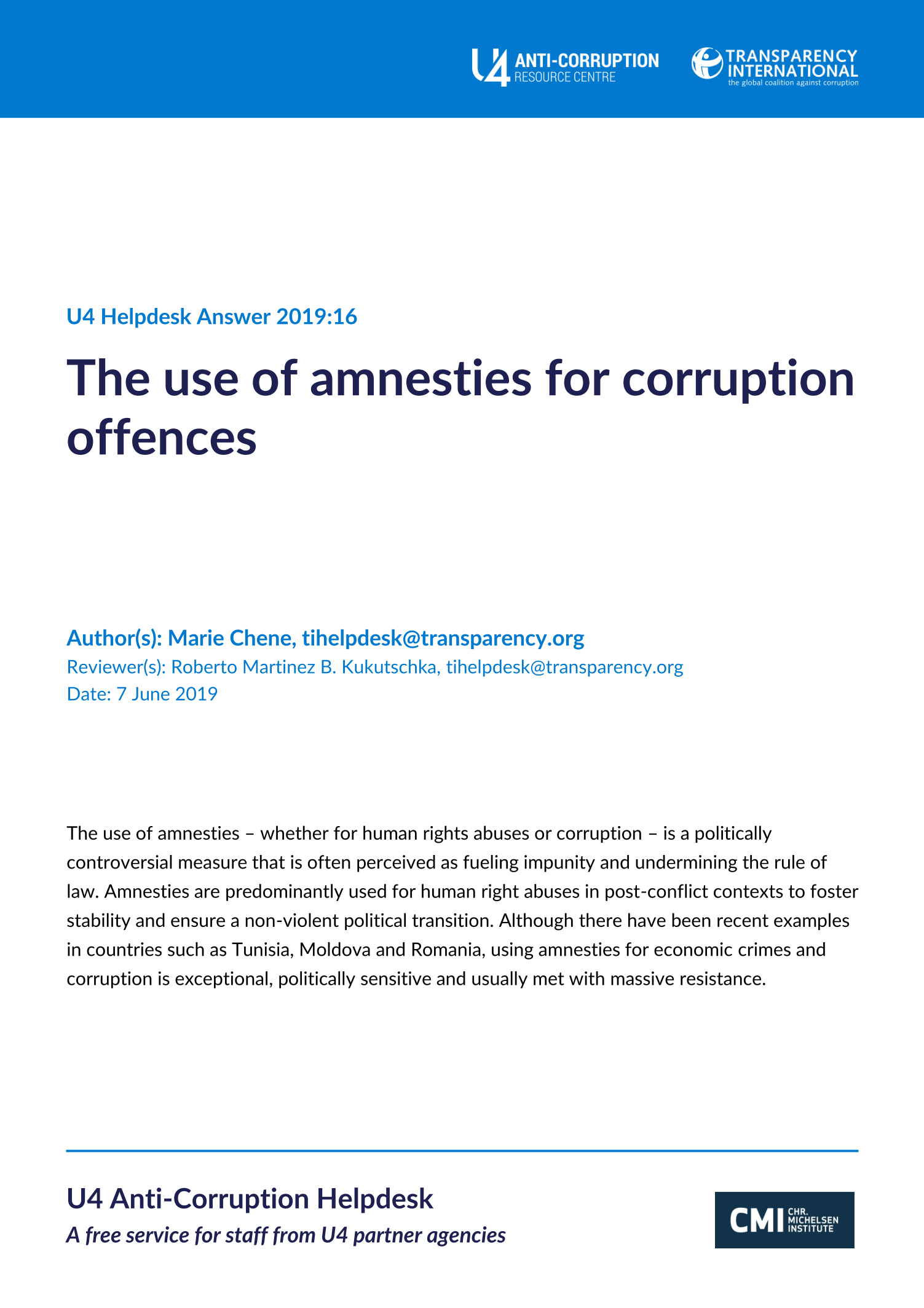Main points
- The use of amnesties is a politically controversial measure, which is primarily considered for human rights abuses in the sensitive context of political transition or regime change.
- The use of amnesties for economic crimes, such as corruption is exceptional, politically sensitive and usually met with massive resistance in most countries.
- There have been recent controversial examples of countries granting amnesties for corruption in Tunisia, Moldova, Romania, Nigeria among others.
- A number of conditions and safeguards need to be considered when using amnesties to balance accountability.

